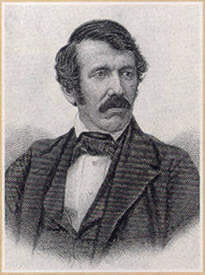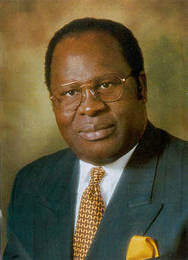 A BRIEF HISTORY A BRIEF HISTORY |

Malawi was formerly called Nyasaland ( Land of the lake) and evidence can be found at a number of sites that the country was inhabited by a pygmy race as early as 10,000 BC. The precise origin of the Bantu who eventually settled in the area is unknown. During the 16th Century there was a vast trading empire established by the Maravi people form whom the country derives its modern name.
 THE DISCOVERY OF MALAWI THE DISCOVERY OF MALAWI |

The Portuguese were the first Europeans to see the Lake. The Portuguese explorer Gasper Bocarro, whose diary published in 1492 made reference to the great inland lake in central Africa. The slave trade, which ravaged most of Africa from the 16th century to the 19th century also left its imprints on Malawiís historical development. The Arab slave traders arrived on the shores of Lake Malawi from Zanzibar in the Indian ocean in search of slaves sometime after 1840 and were to continue until the late 19th century. Dr. David Livingstone, a Scottish missionary, who discovered the lake in 1859 made it known to the world. He named the lake, Lake Nyasa. Following his appeal to other missionaries to come and fight the slave trade in Central and East Africa, the first missionary expedition of the Universities Mission to Central Africa (UMCA) arrived in Malawi in 1861. However, it was not until 1875 that the first permanent missions station was established at Cape Maclear on Lake Malawi by the free church of Scotland. In 1876, Blantyre Mission was established. This is one of the main seats of what is called the church of central Africa Presbyterian (CCAP). In 1884, the first European trading station was stablished in Karonga, Malawiís northeast point. | Malawi was declared a British Protectorate in 1891. This was done through missionary influence. Itís main aim was to stop the slave trade that was rampant in the pre-protectorate days. In 1953 Malawi became part of the federation of Rhodesia and Nyasaland achieved her independence from British rule and became known as Malawi.
 THE 20TH CENTURY THE 20TH CENTURY |

From 1964 to 1994, Malawi was a one party state under the Dr. Hastings Kamuzu Banda. On May 17th, 1994 eligible Malawians went to the polls to vote in the parliamentary and presidential elections after the constitution was amended to accommodate a multi-party system of government which was introduced after the people voted in favour of it in the June 1993 Referendum. The outcome of the elections saw the election of Dr. Bakili Muluzi of the United Democratic Front (U.D.F.) as the countryís first President in a Multi- party System of Government in 30 years.
On the 15th June, 1999, the people of Malawi again went to the polls for parliamentary and presidential elections and Dr. Bakili Muluzi was re-elected as President of Malawi. |

